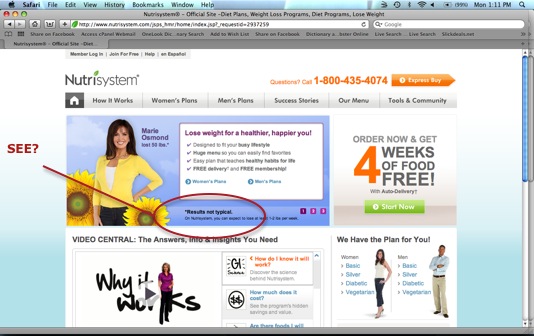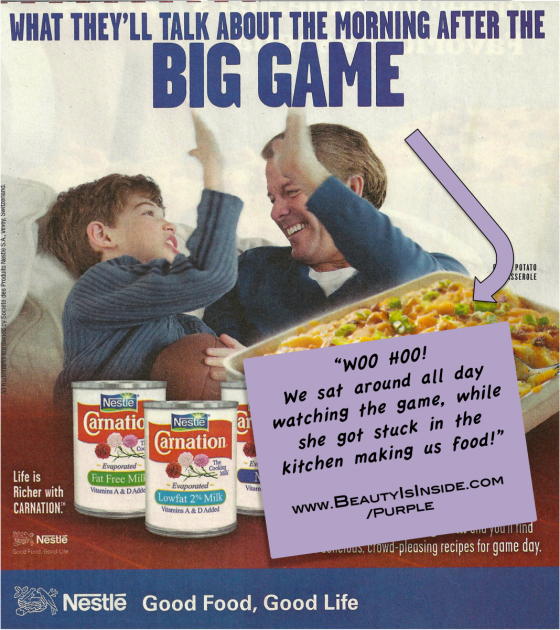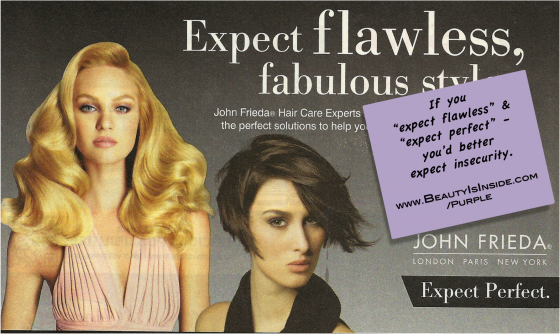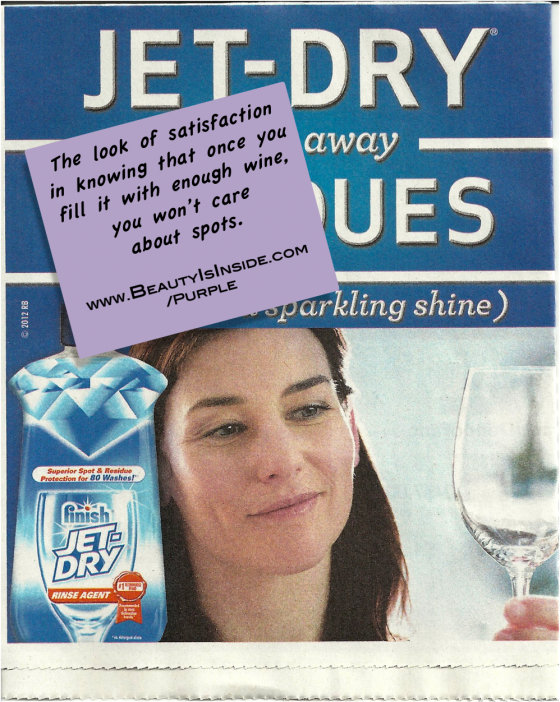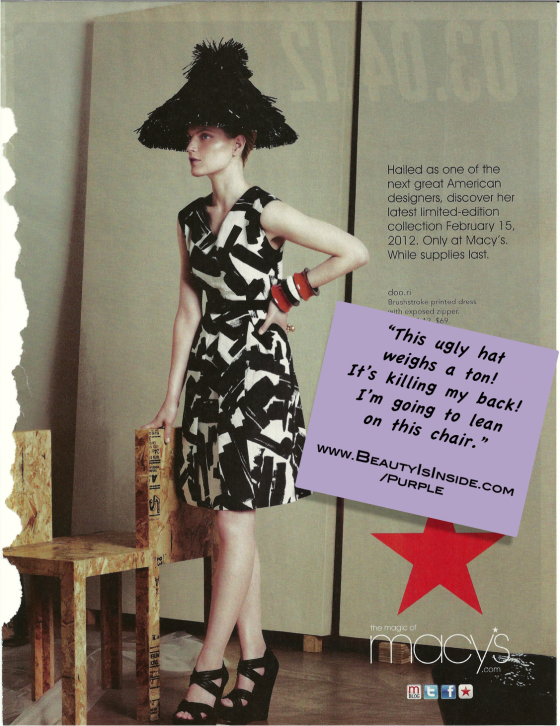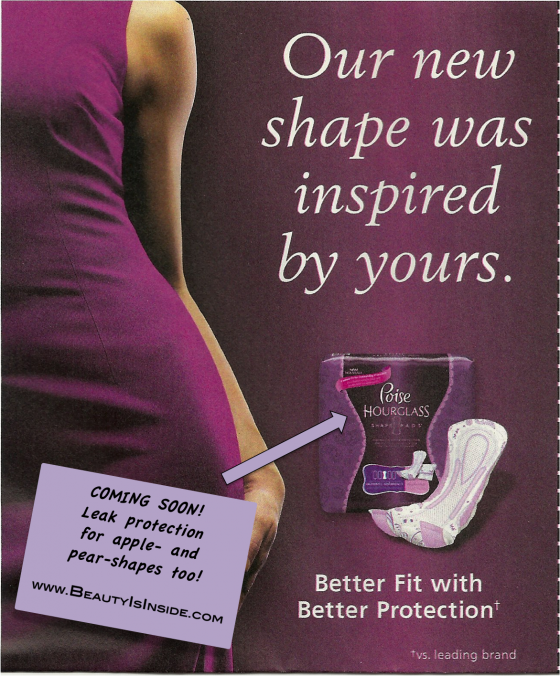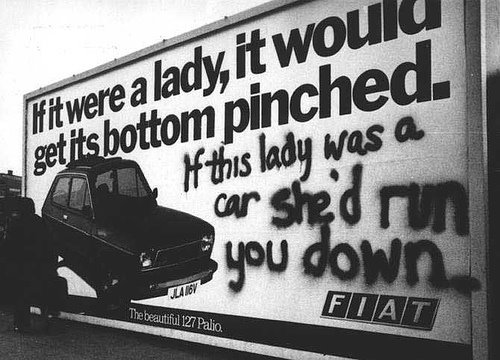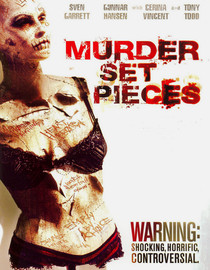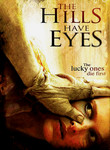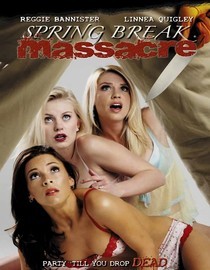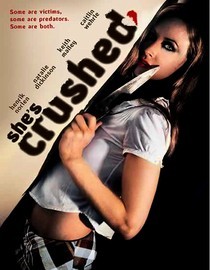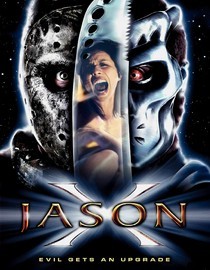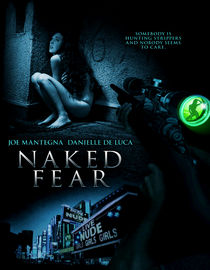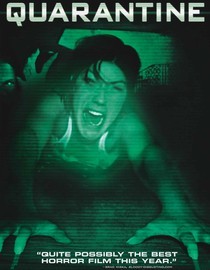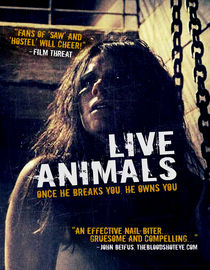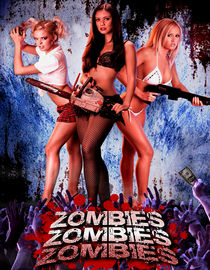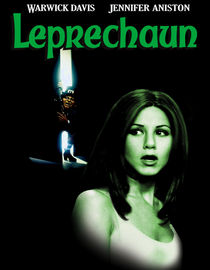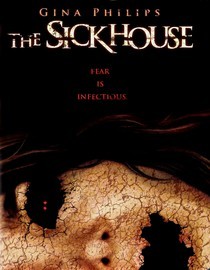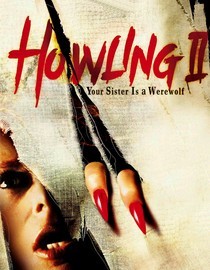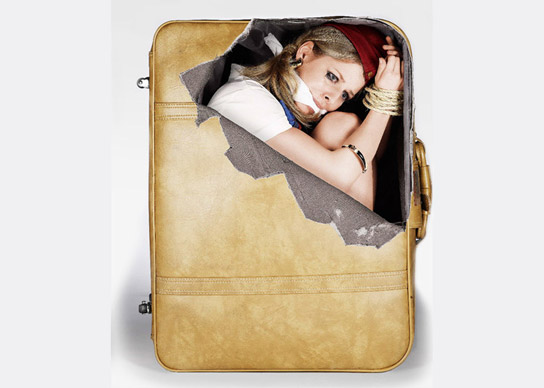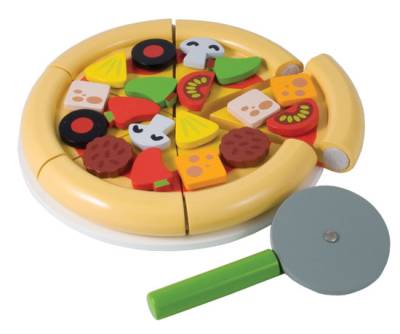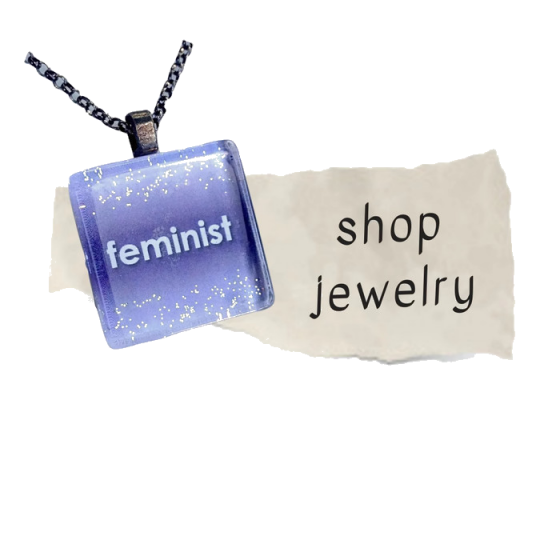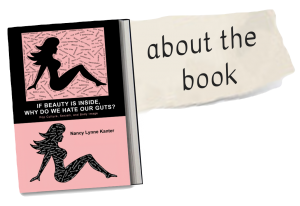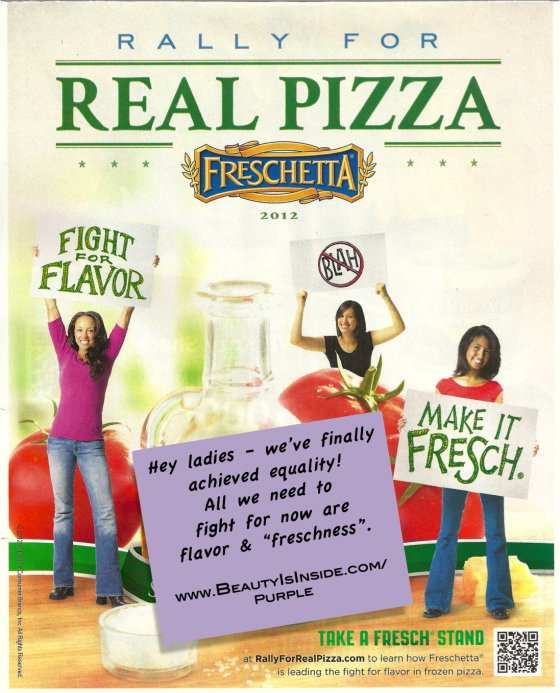
Posts in category Advertising
Purple Paper Project
I'm pleased to announce my new "ad campaign" -- introducing the "Purple Paper Project"! For this project, I'll be critiquing offensive advertising messages with the help of little purple papers and a little snark. Each new ad will be posted here on my blog, and I'll compile them together in the "Purple Paper Project" tab in the right sidebar.
We see about 3000 advertising messages everyday. Even when we're not paying attention, they're always in the background. Cumulatively, these messages affect how we feel about ourselves. In so many ways, they tell us we're too fat, our skin looks like crap, and our house is a mess. They teach us what society expects of us -- and how we're not measuring up. They play on our insecurities, and even invent new ones for us to obsess over (cankles, anyone?). But don't worry, because they're sure to have a product or service that can fix our "flaws"! How very convenient!
The more I started paying attention to these messages, the more I realized how manipulative, insulting, and sexist they were. And I also realized that I was buying right into them. Maybe I did need to lose weight, improve my skin, and clean my house more thoroughly.
Or maybe my weight, skin, and house were just fine the way they were.
Advertising is a one-way form of communication in which powerful corporations try to persuade us to spend our money by manipulating our insecurity. The "Purple Paper Project" is about turning this into a two-way conversation. Consumers have powerful voices too, and it's about time that we started talking back.
To kick this project off, here's an ad from Viva paper towels:
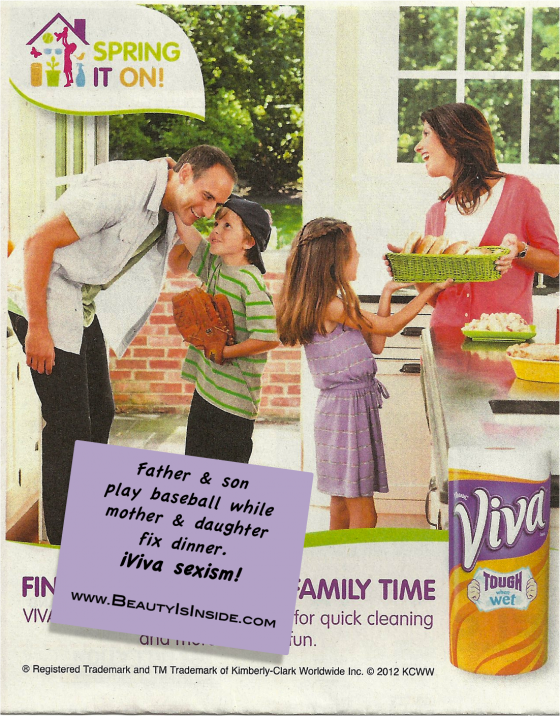
Super Sexism – Not Buying It
Unlike most commercials, those that air during the Super Bowl are ones that people actually want to watch. These $3.5-million-per-30-second-time-slots can be opportunities for companies to be clever, maybe even inspiring ... but instead, many insist on falling back on lazy and uninspired sexist clichés. This is so expected in fact, that MissRepresentation.org, a campaign named after the brilliant documentary film, asked viewers to call out these companies on Twitter with the hashtag #notbuyingit.
Here are the 5 worst offenders, followed by a sampling of You Tube comments that show how sexist messages reinforce viewers' own sexist beliefs:
1) Teleflora -- In what seems more like a Victoria's Secret ad than an ad for a florist, a Victoria's Secret model explains to guys that purchasing a few stargazer lilies is enough to make a girl feel obligated to have sex:
And here are a few comments from enlightened viewers (typos left intact):


- • "It would be so cool to watch a bunch of fat ugly women, chowing down on chips, burgers and fries while they watched this commercial. Those hogs would be spewed out chewed food swearing at the tv. And fat ugly chicks care to comment on this? And how did you react?"
2) Fiat -- In this rarely-used cliché, an attractive woman inexplicably seduces an unattractive geek. She apparently finds being eye-groped a turn-on. I know that I totally wanted to do the last creeper who eye-groped me on the street. I mean what girl wouldn't?
And a few comments:
- • "Insecure and/or ugly chicks tend call things 'sexist'. Lighten up."
- • "if i buy that car i'll ride it hard:)"
- • "This commercial gets 4 boners out of 5. There is nothing more sensual and intriguing than foreign women. American women are so one dimensional, this one is amazing. European and Latin women are the best in the world. American women are total crap!" (48 thumbs up)
3) NFL -- Here's the super-original fantasy of having a bunch of nearly-nude fembots mindlessly standing at attention in the background in case they're needed to fulfill the sexual fantasies of average-Joe-millionaires.
And a couple of comments:
- • "great ad David! big pimpin!!"
- • "Expansive girls can be had pretty cheap actually."
4) Go Daddy (shocking, I know!) -- Judging by their consistently pervy Super Bowl commercials, you'd think Joe Francis was somehow behind it all. Not sure what half-naked girls gone wild have to do with web-hosting, unless Go Daddy is the go-to web host for porn sites.
Here's a comment that's actually critical of the ad:
And these two commenters quickly put her in her place:
- • "sexist douche bags run this company and the ads are almost always sexist. Jillian Michaels has lost any self respect as a woman by working with these tools"
- • "Oh Stfu.. Your just mad cause you look like shit so you start calling people "sexist" because of their commericals just stfu and sit down.. They have a Job I don't see them complaining about it.."
- • "You in the Kitchen?"
5) M&Ms -- And last, but not least sexist, and also oddly ironic ... we're introduced to Ms. Brown, an intelligent and articulate female M&M who voices her annoyance at being treated as eye candy, but whose objection gets shut down by an idiot:
Sigh. We feel your frustration, Ms. Brown M&M. We really do.
Feminist Action Figures!
Here's an awesome fake commercial advertising the Brontë Sisters Power Dolls. Named after the classic-novel-writing-sisters Charlotte, Emily, and Anne Brontë, the dolls were featured as part of a 1998 series that re-imagined historical figures as action figures. In this commercial, kids make the Brontë Sisters fight against the evil publisher so they can get their books into print. The Brontë Sisters come with Super Disguise Mustaches! and Boomerang Book-Throwing Action!, and can transform into a Brontësaurus with barrier-breaking feminist vision! Check it out:
Unfortunately, these dolls aren't real. For now, girls will just have to choose from Bimbo Barbies who stand around looking pretty, Bratz Dolls who look like mini porn stars with eyes larger than their waists, and Disney princesses who always seem to be waiting for their princes to save them.
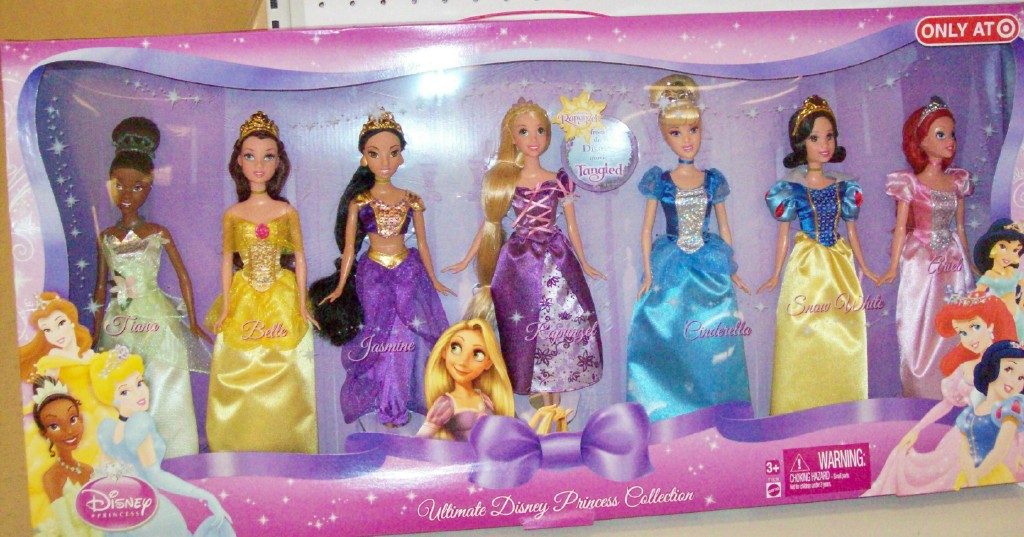
I'd like to think as a girl, I would've chosen the Brontë Sisters Power Dolls (if they existed) over the others. But honestly, I'm not so sure. (I totally wanted to be Cinderella.) As a culture, we need the barrier-breaking feminist vision to offer girls more options so that they can emulate cool action figures like the Brontë Sisters. Otherwise, they'll just keep getting more inaction figures that reinforce the value of standing around looking pretty.
Beauty Magazines Make Us Feel Ugly
In a recent study, researchers found that 100% of women felt bad about their appearance after looking at beauty magazines for just a few minutes. From one of the authors: “Surprisingly, we found that weight was not a factor. Viewing these pictures was just bad for everyone,” said Laurie Mintz, associate professor of education, school and counseling psychology in the MU College of Education. “It had been thought that women who are heavier feel worse than a thinner woman after viewing pictures of the thin ideal in the mass media. The study results do not support that theory."
I happened upon this brilliant way of fighting back. This was part of a campaign by the National Eating Disorder Information Centre (NEDIC) in Canada that targeted beauty magazines. From NEDIC's website: "To involve the public in our campaign, this transit shelter ad appeals to dieters and those who feel the pressure to diet (virtually all women), empowering them with a way to really shed their weight problem."
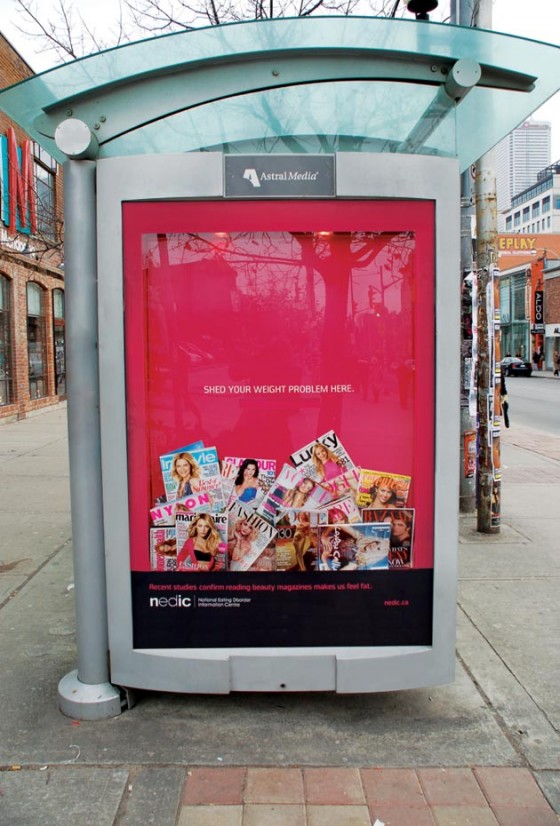
Close-up:
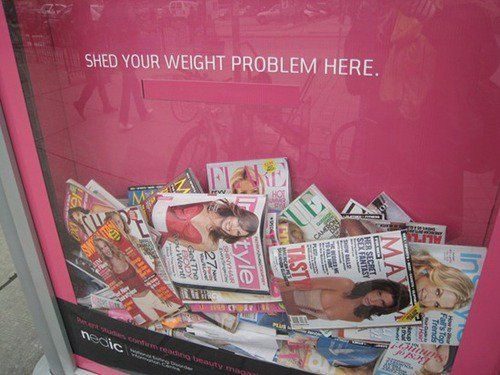
Text at bottom of display:
"Recent studies confirm reading beauty magazines makes us feel fat."
Another study demonstrated "... the role of the media in shaping, rather than merely reflecting, societal perceptions of the female body. Consistent with our hypothesis, it was found that women's body image satisfaction is, indeed, influenced by their exposure to the thin ideal presented in fashion magazines."
(Want more? Here's one of my previous posts on this topic.)
Why the H R they Puff ‘n Stuff?
In a previous post, I discussed how the media create arbitrary flaws in women's bodies, then conveniently offer up solutions to fix those flaws. That post was about ugly armpits. Today's example is about the land down under -- and I don't mean Australia. (I've also written about this flawed area before.) Yesterday, Jezebel posted a clip from the CBS daytime show, "The Doctors," in which they discuss how "Your Aging, Deflated Vagina Is Like A Hamburger." (Well technically, it's your aging, deflated vulva, but let's move on.)
On the show, Dr. Jennifer Berman, expert in the field of female urology and sexual medicine, made her case by explaining how your private parts become less puffy as they succumb to gravity, age, and having babies, and this makes them sag and deflate. She used a hamburger as a pretend vulva. (I guess a taco would've been too tacky.) She held the burger sideways so that the meat patties represented the inner labia minora and the buns were the outer labia majora -- the parts that don't puff enough. (Side note to show producers: On the next show, you could totally add different condiments to the burger in order to discuss a variety of vaginal maladies, e.g., cheese, mayo, ketchup, etc. Just a thought.)
Dr. Berman explained that a procedure called the "Labial Puff" can counteract the sagging and deflating. It entails injecting the outer lips with cosmetic filler, similar to the injections done to the lips on your face. It allegedly helps to revolumize the labia majora -- or in other words -- it puffs your muff.
"Ladies, you're not going to notice it if you're just laying down or sitting down. I actually had to bend over and look under and I swear to God, I almost had a heart attack [insert audience laughter]. And it was subtle, but it was there," she said.
So, let's get this straight. This alleged labial malformation isn't noticeable unless you're bending over and looking under yourself in some sort of mangled yoga pose, right? And not only that, but while you're contorting yourself to search for your most recently discovered fucked up body part, you discover that it's only subtly fucked up? It doesn't hurt or interfere with your sexual function, but it supposedly looks subtly fucked up according to those who have an interest in fixing it. And that alone is a good reason to perform a cosmetic procedure on it? That's what I think is fucked up.
And that, boys and girls, is an example of how the media invent an arbitrary flaw in the female body to create a need, and then serve up a solution to fulfill that need.
The Labial Puff is supposed to make your vulva look more youthful ... some would say even childlike. So here's a question: what about the guys? When boys go through puberty, their testicles drop, and they continue their downward descent as men age. Why don't we hear "The Doctors" make a case for the Sack Lift to make men look more youthful? Like the Labial Puff, it could be just a simple outpatient procedure in which they inject cosmetic fillers to pump up the testicular volume. Then they could do a couple of little snips and stitches to raise them up to a more youthful -- and virile state.
The best part? "The Doctors" could explain the procedure on their show by using a couple of meatballs.
I Take it Personally
It's quite rare for advertising to celebrate women's extra curves. Sure, Dove's "Campaign for Real Beauty" uses a variety of women in their ads to show that different bodies can be beautiful. But as I mentioned in a previous post, their parent company, Unilever, contradicts itself with sexist Axe ads geared toward men. Olay's recent slogan was "Love the skin you're in," but their ads still photoshopped all of the pores, age spots, wrinkles, cellulite, and zits out of the skin their models were in.
In 1997, The Body Shop launched an ad campaign with the image below to inspire women to accept their bodies. I remember being excited as the store even handed out stickers with this image. Unfortunately, the ad soon disappeared after Mattel threatened to sue over the unauthorized use of Barbie's likeness. Unlike most companies that sell beauty products, The Body Shop hasn't relied on idealized images of women to sell their face creams, body butters, and lip gloss. They have a history of being a socially responsible company that supports humanitarian and environmental causes. Their ad was a refreshing break from all of the other media messages that pressure women to look perfect.
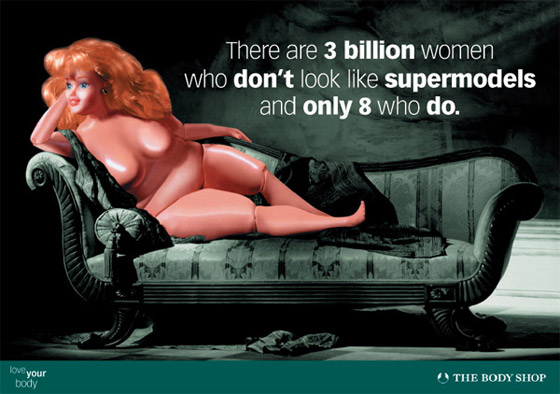
“It’s the image of the beauty business that’s damaging to women. When you damage, you take away her self-esteem, and self-esteem is not a wishy-washy subject. It is the route to revolution, it is a route to self-knowledge, self-worth, it is a route to political activism, it is a route to say, ‘Stand up and matter!’ and to say, ‘I take this personally.’ That should be the mantra [of every woman] – ‘I take it personally.’ I take what you say about us, I take how you interpret us, I take how you think you can sell to us – I take it personally.” --Anita Roddick (1942-2007), founder of The Body Shop
No More Wire Hangers!
Introducing Skinny Hangers!
Because you can never be too skinny --
and apparently, neither can your hangers.
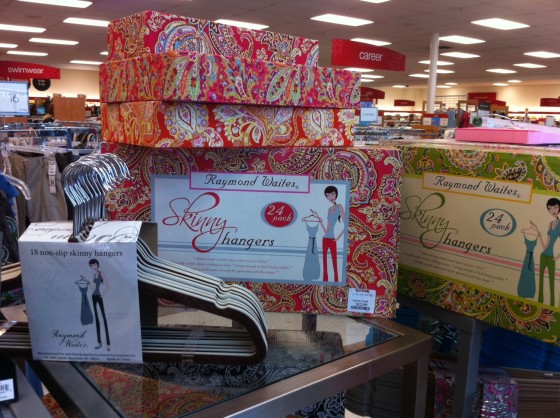
Just make sure to avoid this kind,
no matter how skinny they are:
Beauty Is the Pits
Step aside, cankles! There's a new body part to hate!
Raise your hand if you know what it is. Raise your hand if you're sure. Now turn your head toward that raised arm.
That's right, ladies -- your armpits are hideous. They're hairy, they're smelly, and they're ugly. But don't fall into a pit of despair.
Fortunately Unilever, the makers of Dove®, have a solution! Dove's new "Go Sleeveless" deodorant claims to make a woman's armpits more attractive in just five days! Hear that, ladies? In a little bit, your pit can be the shit!
As Stephen Colbert states in this clip from the Colbert Report, "One of the secrets of sales is fulfilling the public's need. The other secret is inventing the public's need."
Incidentally, Unilever is the same company that developed the Dove® "Campaign for Real Beauty" a few years ago that featured "real women" instead of models in its ads as a way to counter sexist media imagery. Unilever also owns the Axe® line of mens' products whose ads feature the same sexist imagery that Dove® is allegedly fighting against. This site shows one of the videos put out by the Dove® campaign, along with a brilliantly re-edited video that juxtaposes it with ads by Axe®.
As Colbert says, "If there's one sure way to financial security, it's inventing women's insecurity."
Women, Sort Yourselves Out!
Just LOVE this fake commercial from the British television sketch comedy series, That Mitchell and Webb Look, on BBC. Hilarious way to show how the advertising industry markets to women vs. men.
Damn – That’s Some Hot Chocolate!
Call me uptight, but I would never have sex with my chocolate or my broom – regardless of what the commercials would have one believe. Each 30-second spot shows women seeking out romantic relationships with these and other inanimate objects.
Women seem to particularly enjoy making out with chocolate. In our image-and-diet-obsessed culture, indulgences like chocolate are forbidden. It's a guilty pleasure that we should have in secret. One must not show off that she engages in such sinful activities lest she be deemed a fat gluttonous pig. Eating chocolate is our dirty little secret, but oh how it pleasures us. We become practically insatiable, but then the shame sets in and we abstain for awhile.
What do you think happens when we're culturally pressured to be chocolate virgins? We turn into chocolate whores, of course.
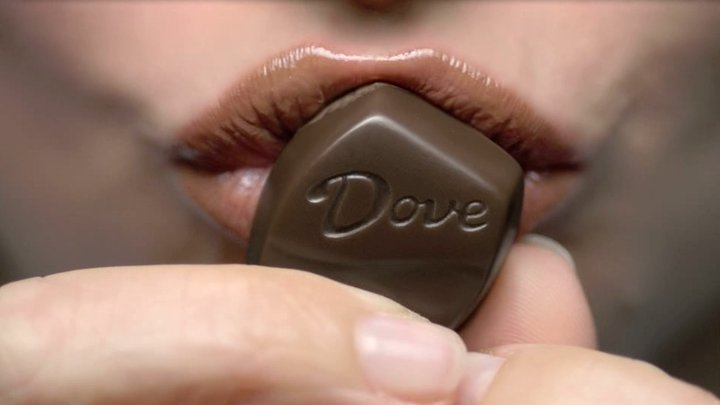 Seriously, Dove®. Just because I love your chocolate, it doesn’t mean I love your chocolate.
Seriously, Dove®. Just because I love your chocolate, it doesn’t mean I love your chocolate.
I’m even less likely to love sweeping the floor. This relationship is a little different than the one we have with chocolate though. It doesn't matter that it's 2011 -- in the world of commercials, cleaning is still women's work. When we’re not using Bounty® to cheerfully wipe up the bounty of milk that our 5-year-olds spill all over the kitchen floor, we're being romanced by our cleaning products. According to the tagline, “Swiffer® gives cleaning a whole new meaning.” Apparently, that meaning implies that we like to get dirty with our cleaning products.
(Looks like this woman can’t handle their differences, so she leaves the broom for a Swiffer®. Although the broom bristles at first, he ends up replacing his human female with a rake. Another meaningless relationship left in the dust.)
If women are so hard up for companionship that we’re hooking up with our brooms, then we’re some pretty desperate housewives indeed. Who’d heavy pet her Swiffer® WetJet? Who’d think her Swiffer® Duster could ever pass muster? Who’d aim for no deeper than her Swiffer® Sweeper? Who’s that lady?
In the context of this absurd alternate universe in which human females choose common household products as mates, I suppose I would have to choose the chocolate over the broom. At least chocolate is sweet and rich, caring for my heart with antioxidants and getting me giddy with endorphins. I could just put a piece between my lips, savor it and let the smooth creaminess slowly melt across my tongue and fill my mouth with pleasure until it becomes a part of me. Ahhh ... how romantic.
Can a broom do all that? Hell, not even Swiffer® can.
They Really Don’t Know Jack
Spotted at the local drive-through --
Text: "Treat yourself to something extra. Not like a massage or anything, just what's on the menu."
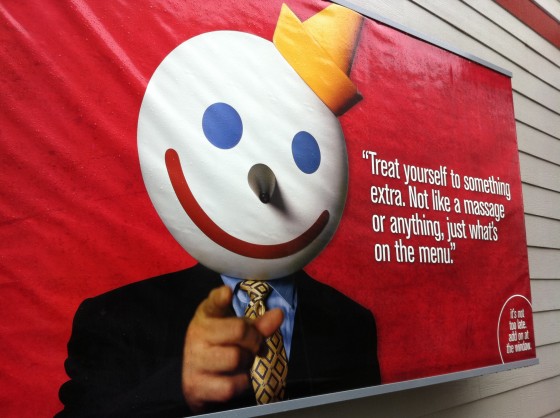
Damn right, because ...
Nothing feeds the soul like a teriyaki bowl.
There's no greater prize than seasoned curly fries.
And a sirloin steak melt is like nothing you've ever felt.
See Victoria’s Secret Candies
I snapped this photo while shopping at my local mall. Seriously, what kind of sadistic bastard would put these two stores next to each other? They might as well go ahead and add a Lane Bryant to the mix and complete the body angst triad. Jeez.
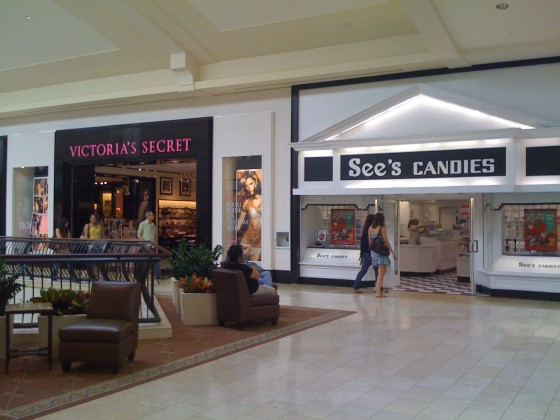
The Horror of Sexy Victims
Our culture has a twisted way of dealing with female sexuality. On the upside, women are placed on pedestals as pretty objects to peer at; however on the downside, we're threatened with violence and control. Attractive women are featured as victims in all forms of media: they’re the dead bodies or rape victims in horror movies, action thrillers, and television crime dramas; they're the abused women in Lifetime movies; they’re in print and Internet ads as dismembered, sexual body parts, or they’re striking corpse-like, dominated, or submissive poses in Vogue. As if being victims of violence weren't enough, those victims are usually portrayed in various stages of undress, which further communicates vulnerability.
To be fair, women are not merely portrayed as sexy victims -- we're also the sexy perpetrators. (Yay?) We use our sexuality as weapons against men, threatening them with temptation and making them vulnerable. But the femme fatale fetish is merely the other side of the same coin. It all goes back to a sexually repressed culture that still hasn't gotten over its virgin/whore complex. Both victim and femme fatale imply that female sexuality is dangerous and must be controlled. This is also reflected in our cultural attitudes about virginity, sex education, unwed mothers, and abortion.
"Torture porn" is a recent trend in the horror film genre that features exceedingly graphic violence. The terminology itself links violent imagery with sexuality. Although the films do not necessarily involve sex, they often show nude or partially dressed women being pursued, captured, raped, tortured, and murdered -- therefore making the name quite appropriate. Torture porn is meant to shock, disgust, and degrade more than to frighten and is a more extreme example of the typical forms of media violence.
And this mentality bleeds into real life. Even local news programs, while not exactly entertainment, tend to follow the same theme. They offer airtime for stories about attractive, upper-middle class, white, young, female victims of kidnapping, rape, or murder, while largely ignoring less stereotypically attractive, poor, or minority victims. Is it really true that only cute little blond girls, suburban teenagers, or pretty college coeds get victimized? Of course not, but the media treats those stories as the most compelling. They're just more sympathetic victims, apparently.
The regular depiction of attractive women as victims conveys an undercurrent of hostility. These images create and reflect a culture in which varying degrees of sexual aggression and domination against women are normal -- even socially acceptable. Violence against barely-dressed women in the media suggests the antiquated notion that "boys will be boys," with the unspoken implication that women can "ask for it" or "deserve it" based on what we look like, what we're wearing, or how we act. Overt female sexuality apparently can be a causal factor for violence against us.
Hell, wearing "fuck me" heels must be practically an invitation then.
I didn't have to try hard at all to find the large collection of images displayed here (see more below). Unfortunately, I could've kept going. Men are definitely portrayed as victims in the media as well, but they are not depicted in the same manner. Their lives may be threatened, but their sexuality is not. Why is this?
Violent imagery plays on women’s real fear of sexual violence. Guys may invoke prison movie shower scenes or the “squeal like a pig” scene from Deliverance as humorous ways to refer to the rape of men. It can be joked about, because the threat is far from the reality of most men. There aren’t many situations in which grown men fear sexual violation. Women live in a different world. Female sexuality paired with violence is particularly threatening because it happens, and not just when we’re in prison or on a camping trip in the backwoods of Georgia with inbred hillbilly banjo players. And even if we never personally suffer sexual violence, we live with the fear that it’s a possibility. Most of us have either been assaulted or know another woman who has. We watch the news. We’ve heard the statistics. We’re aware of our vulnerability in fighting off unwanted advances – either due to lack of physical strength or because we’re socialized to please men and we fear speaking up. We nervously glance over our shoulders while walking alone at night. We feel anxious walking past a group of leering men. We feel violated when a male acquaintance get a little too touchy-feely after a few drinks. And for good reason. Women get raped by men we don’t know. We get raped by men we thought were our friends. And we get raped by men we love.
All of this imagery reflects real world dangers for women in the rate of actual violent crime against us and also in the lessons we learn from an early age in how to protect ourselves against those dangers. We learn not to talk to strange men, walk down dark alleys alone, leave our drinks unattended, wear certain outfits, go back to the guy's place on a first date, or to engage in similar risky behavior. As women, we learn that we’re never really safe, but it's our responsibility to avoid being attacked. And then if we fail to take the "right" precautions, the implication is that we may have even asked for it.
There's more than one reason why these images are scary. Individually, they could be considered entertainment. But together, they seem like a warning.
It’s as if we’re daring to seduce death itself.
Love Your Body (only if it looks good)
Every form of media reminds us that our bodies are not acceptable as is. Perfect female forms are used to decorate movies, magazines, music, makeup ads, and more. It’s hard to avoid seeing all those images and just as hard to avoid negatively comparing ourselves.
Thankfully, we women have empowering sites like this to balance that out. They even have a special “Love Your Body” section, dedicated to helping us, you know, love our bodies. Let’s check it out together, shall we?
Here’s a recent screenshot:
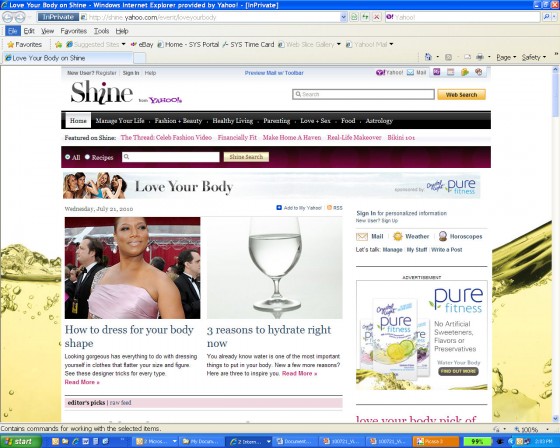
First of all, if I looked like the “Love Your Body” flexing girls at top, I’d probably love my body too. The rest of the page isn’t that bad though. I can get behind dressing in a way that best flatters my shape. By the way, it’s refreshing to see a photo of the not-stereotypically-perfect-looking Queen Latifah. Moving on … yes, hydrating oneself is good … and one can do this with Crystal Light Pure Fitness, apparently. (Question: if I turn my water into fitness water, will it turn my body into a fitness body?)
Scroll down to next screenshot:
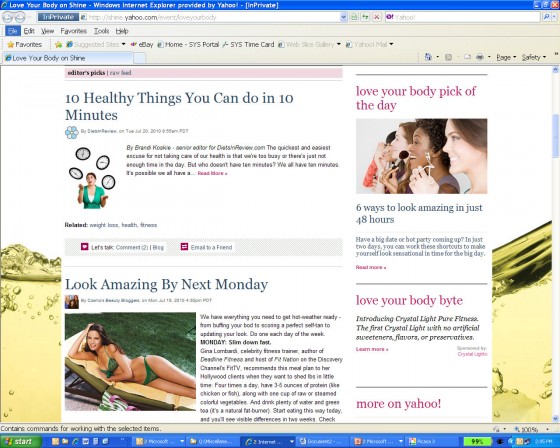
First, we have “10 Healthy Things You Can Do In 10 Minutes.” Sounds good. Hold on now … what’s this? “Look Amazing By Next Monday” accompanied by a picture of stereotypically-hot-bikini-girl. What’s today? (checking calendar) Wednesday? Well crap – I’d better hurry up then! I’m pretty sure that no matter what I do though, there’s no way I’ll look like her by Monday. However, if I glance to the right, I find that there are 6 ways I can look amazing in just 48 hours. Well which is it?! Do I have 48 hours or until Monday to look amazing?! Someone please tell me! I need to know how much Crystal Light Pure Fitness I have to drink!!!
Scroll down again:
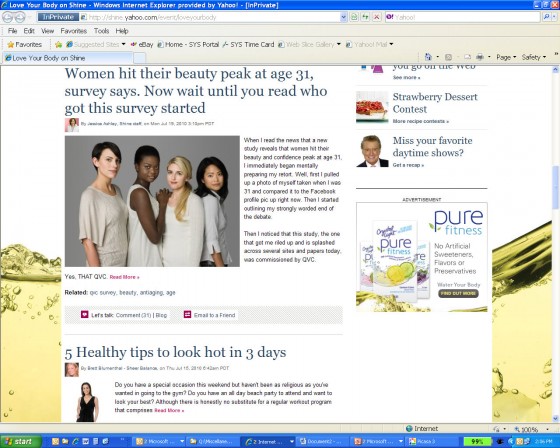
Now this is interesting. Just when we thought that hitting legal drinking age was the time of our beauty peak, a new survey finds that it actually occurs 10 years later. Good news – all that drinking has served us well! Next time someone tells me, “Looks like you’ve been partying a lot,” I’ll consider it a compliment! I appreciate the ethnically diverse photo of women who also seem to have partied a lot. And we move on to the next story … “5 Healthy Tips to Look Hot in 3 Days” … wait a second. WTF? I’m so confused! Do I have 48 hours, 3 days, or until Monday?! I won’t be able to sleep until I find out! This is driving me nuts! It’s enough to make me want to just jump off a bridge and forget it.
Scroll down yet again:
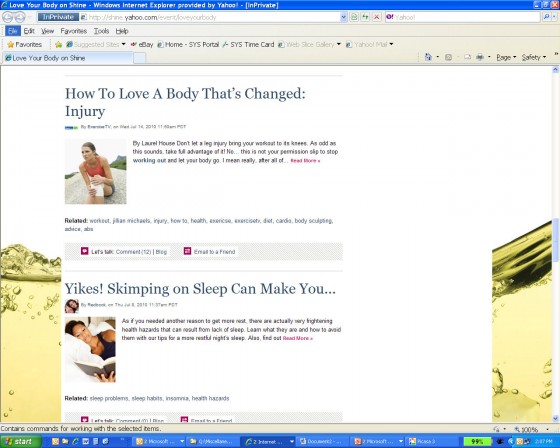
I give up.
Maybe She’s Born with It …
 Maybe it's photoshopp--ing.
Maybe it's photoshopp--ing. 
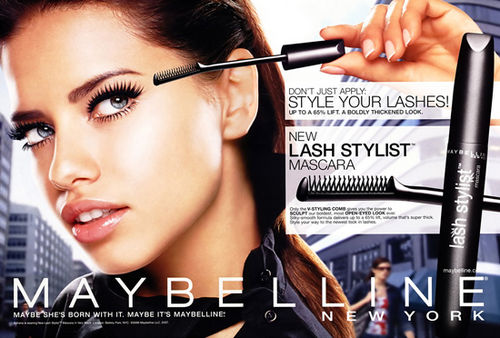
Kidnapping is Funny!
The Cheeky has unveiled a collection of suitcase stickers designed to make it look like your Samsonite® has been ripped open to reveal its contents. Their four designs let FAA personnel, along with your fellow passengers, think that you either: a) smuggle cocaine, b) have stacks of cash, c) have a sex toy fetish, or d) are a kidnapper (my personal fave!).
The description on the website reads: “Take a stand against monotonous travel with Suitcase Stickers.” Wow. You can totally tell that whoever designed these stickers is like a real social activist.
Hell yeah! Hear that, people! I’m gonna take a stand! It’s time to do something about boring air travel. Enough’s enough. And you know what would amuse me? Here's what! Holding up everyone at security as the screeners do double-takes of my luggage until they realize how incredibly witty and clever I am! OMG – it would be so funny if people thought that I kidnapped a flight attendant, tied her up, gagged her, and shoved her in my suitcase! How hilarious! Her mascara’s smeared too, so it looks like she’s been crying. ROTFLOL!
How very cheeky indeed.
I Lost 50 lbs. by Eating Cardboard, & You Can Too!*
* Results not typical
I know that this may come as a shock to some, but those prepackaged, Lean Cuisine®-Nutrisystem®-Jenny Craig®-style meals are not food. They’re simply not meant for human consumption. Lean Cuisine® is hardly cuisine in any traditional sense of the word, Nutrisystem® has a negligible number of natural nutrients, and I’m willing to bet that Jenny Craig’s curriculum vitae doesn’t contain any kind of culinary career.
Each cellophane-film-covered plastic tray contains a chemically-enhanced food-like product (and maybe a few extra hyphens). The colorful photo on the box fools us into thinking that the contents are appealing (and only 300 calories!), but once we open that box, we’re dealt the harsh hand of reality, and we find that it’s full of jokers.
Advertisements for these “foods” feature B-list celebrity endorsers standing in front of the camera and striking three-quarter poses in their new Vogue-worthy bodies. They sneer at their ghastly “before” photos snapped by sneaky paparazzi, and treat their old selves with the same disdain reserved for the fat girl in gym class. They wordlessly admit that they’ve given into the shame of being caught fat in public. And damn, if they aren’t going to do something about it! [Enter cape-wearing diet program.]
These celebrities stand there claiming they lost weight by eating delicious treats like pizza and chocolate! OMG! But that sounds crazy, because we all know that pizza and chocolate aren’t diet foods. Duh! ... But wait! Sometimes they are! And if Kirstie Alley and Marie Osmond can drop 50 pounds indulging in such “treats,” then you can too! (Be sure to note the “Results not typical” message in tiny print at the bottom of EVERY one of these ads: Go on and check … I’ll wait.)
